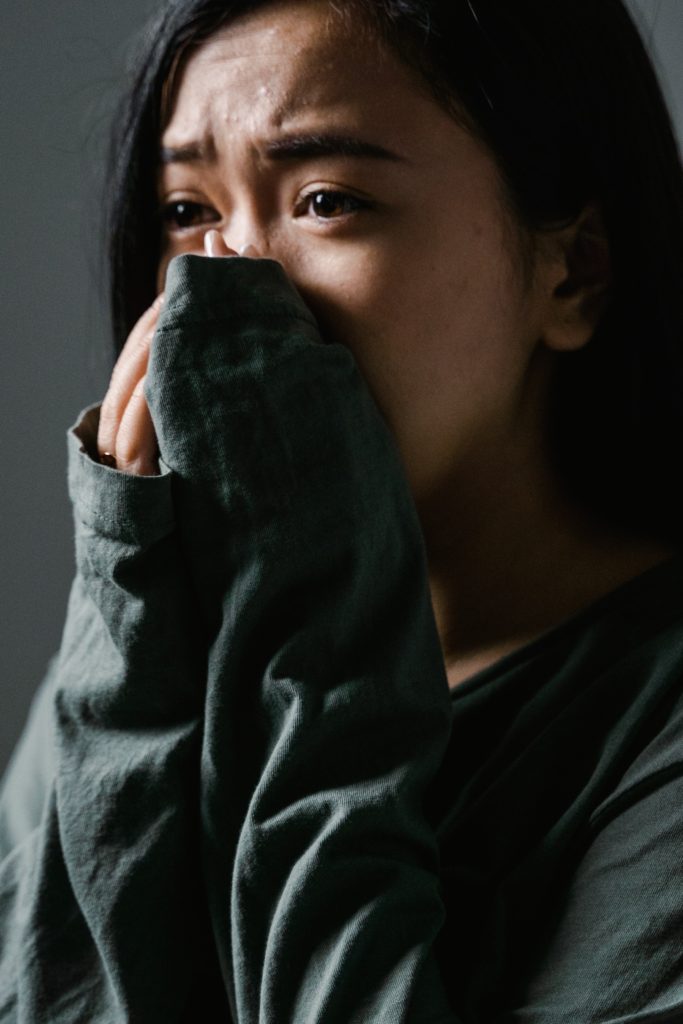What is Agoraphobia and How Do You Deal With It?

Agoraphobia is considered an anxiety disorder type in which you tend to avoid and fear situations or places that may cause you to get panicky and entrapped, embarrassed, and even helpless. You might fear an anticipated or an actual situation going on like getting to meet new people, being in an enclosed space, or being in a type of crowd.
Fear is the real cause of anxiety, and there is no way to escape considering the anxiety gets intensified. Most of the people with this condition get it after some panic attacks, which causes them to get worried regarding panic attacks and avoid such places where it might not happen again.
Individuals having agoraphobia may experience a hard time feeling safe in any kind of public place, specifically where there is a crowd gathering. You might have the feeling that you require a companion, like a friend or family member, to accompany you in different public places. It might be so overwhelming that it can be difficult for you to leave your home.
Table of Contents
What Are the Symptoms of Agoraphobia?
Some common symptoms of agoraphobia include having a fear of the following things:
- Leaving home with no one to accompany you
- Having to be in a crowd or waiting line
- Fear of being in enclosed places like small stores, lifts, or theaters
- Unusually big spaces such as oceans, mountains, parking lots
- Sitting in a means of public transport such as plane, train
Such situations might cause you anxiety as you fear that you wouldn’t be quite able to find help or escape if you start getting panic or have some kinds of unusual symptoms
What’s more, you will also experience that in agoraphobia:
- Anxiety or fear gets triggered by exposure to certain situations
- Out of proportion fear, anxiety to the actual danger anticipated towards the situation
- You tend to go away from the situation, and you require a companion to be with you – in other cases, you can endure, but you are distressed to the extreme.
- You may experience certain social situations or work problems due to avoidance, anxiety, and fear.
- You might experience different phobias lasting more than six months
Agoraphobia and Panic Disorder
It is found that agoraphobic people often have panic disorders. It is considered an anxiety disorder type in which you may have immediate attacks related to fear that may reach a high in a few minutes and may trigger some kind of intensive physical symptoms. There might be thinking that you may lose control or have a heart attack for the worse condition.
The fear related to a panic attack might lead to your avoidance of the same situations or the location in which it took place as a try to stay safe from panic attacks in the future.
What Are the Causes of Agoraphobia?
There are different causes of agoraphobia. Your health conditions, temper, genetics, learning experiences, and stress from the environment all contribute to this condition.
It may start in childhood. However, it usually begins in the early adulthood or late teen years, usually before the mid-thirties. However, older adults are also likely to get it. Agoraphobia is more prevalent in women than it is in men.
Some risk factors for this condition are stated as the following:
- Getting phobias or panic disorders
- Reacting to different panic attacks with avoidance or excessive fear
- Having stressful experiences such as the death of a loved one, getting abused, or being in violence
- Having a nervous or an anxious temper
- Having a family member with the same condition
Examples of Agoraphobia
Let’s see an example of agoraphobia. A person with this condition might try avoiding travel by plane because of fear of panicking in public – not fear of flying. A person having such a condition may try avoiding crowds, fearing the hidden embarrassment of getting a panic attack around a huge crowd.
What causes Agoraphobia ?
Agoraphobia usually gets developed due to the anxiety disorder with panic attacks or intensive moments of fear. Agoraphobia might develop by interlinking panic attacks from conditions or places in which they occurred in the first place and avoiding them on the whole.
Agoraphobia vs. Social Anxiety
Agoraphobia and the disorder of social anxiety are similar yet two separate disorders of the mind. Though both are considered the type of anxiety disorder and may result in the person trying to avoid some particular conditions, the actual causes behind these two disorders are usually different.
The real difference between agoraphobia and social anxiety is that the individual fears are losing control in certain situations. On the other hand, an individual having social anxiety may worry about getting embarrassed or judged in different social situations.
What Does Agoraphobia Look Like?
The overall signs and symptoms of this condition in a person include getting anxious due to being away from a safe environment and having panic attacks. These panic attacks are indicated as sweating, breathlessness, palpitations, dizziness, dysphagia, nausea, and sensations of dread and fear.
- -How to Learn relaxation techniques you can do anywhere.
- -Identify anxiety in yourself and others.
- -Learn how to better react to situations and set a firm foundation for dealing with stressful situations.
- Use Natural Supplements, Dietary, and Lifestyle changes to help you feel less anxious sooner.
- I am a Counselor in Training, so I share what I learn through my education and experience and the price will go up shortly--- However! You will get all of the free updates I make to the course at no additional charge to you! As I learn through research, my education, and personal experimentation of new supplement regimens I will share them with you!
Treatments
Psychotherapy is related to working with a professional therapist to set goals and learn different practical skills for alleviating your symptoms related to anxiety. For example, cognitive behavioral therapy is considered among the best psychotherapies for different anxiety disorders, such as agoraphobia.
Usually considered a short-term treatment, CBT or Cognitive Behavioral Therapy highlights certain skills for better tolerating anxiety, challenging your worries, and then gradually resuming to the different situations and actions you have avoided due to anxiety. With the help of this therapy, your symptoms start improving as you start building on your initial level of success.
With the help of it, you can learn the following:
- The factors that might trigger symptoms related to panic attacks and the factors which aggravate those symptoms
- Ways to deal with and endure the different symptoms of anxiety
- Ways to challenge your different worries, including the anxiety of losing control in social situations
- Decrease anxiety gradually in otherwise triggering situations and ways to manage those symptoms
- Ways to change negative behaviors through the process of exposure therapy or desensitization for facing the situations triggering anxiety and fear
Additional Treatment Methods
If you find trouble leaving your home, you might be wondering how you can visit the healthcare therapist provider’s office. Professional therapists are aware of this issue that you may feel. In that case, they can help you find alternatives to walk-in appointments in the initial stages of the treatment. They might want to visit your place, so you get the initial sessions in your safe zone. Some professional therapists might offer sessions on audio or video calls as well.
Suppose the agoraphobia is considered so severe that you cannot access the care needed. In that case, you may find a specialized hospital program to be more helpful, which specializes in such anxiety disorders. You might also take a friend or a relative with you to the appointment to feel safe and comfortable outside your home.
What Are the Medications for Agoraphobia?
Different antidepressants are used for treating agoraphobia, and in some cases, drugs against anxiety are utilized for some time. Antidepressants are considered to be more effective than anti-anxiety medicines when it comes to the treatment of this condition.
Antidepressants – Serotonin Reuptake Inhibitors or SSRIs like sertraline and fluoxetine are considered to be effective against agoraphobia and related panic disorders. Some other types of antidepressant medications might also be effective for treating agoraphobia.
Medications for anxiety – Benzodiazepines and other anti-anxiety drugs are sedatives that might be prescribed to you for relieving different anxiety symptoms. For instance, benzodiazepines are usually utilized for relieving acute symptoms of anxiety in a relatively short-term time. As they can cause dependence, these medications are not considered the best choice considering you have long-term conditions related to anxiety or abuse of drugs or alcohol.
Exercise is a great natural antidepressant and it has been compared to the use of SSRIs to increase available serotonin. Exercise increases your serotonin, dopamine, and noradrenaline all of which make you feel good!
It might take some weeks for the medication to relieve the symptoms. You might have to consider using different medications to find the best one for you.
Both are initiating and finishing a course of antidepressant medications might cause different side effects, which may create some uncomfortable physical sensations or symptoms related to panic attacks. Considering this, your physician might gradually increase your dose and decrease your dose when there is a need to stop the medication intake.
Final Word
Agoraphobia is a common anxiety disorder in individuals and is characterized by the fear or avoidance of embarrassing symptoms of panic attacks. There can be multiple factors associated with this condition. However, with due treatment and therapy, it can be treated.
Originally posted 2022-03-07 04:34:20.
Megan Santiago
Latest posts by Megan Santiago (see all)
- How to Find a Trauma Therapist in Tampa - September 30, 2024
- The Best Essential Oils for Adrenal Fatigue - March 10, 2024
- The Best Ashwagandha Supplement – It Works Fast - March 10, 2024

